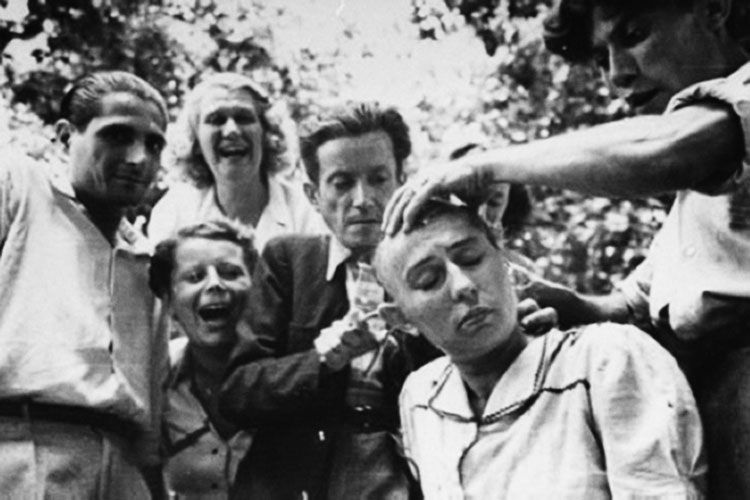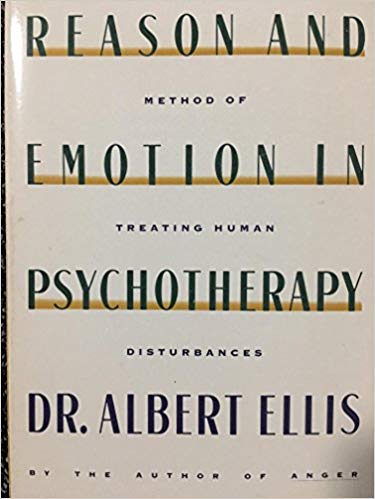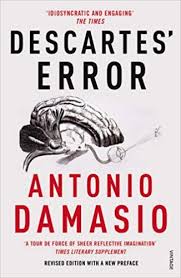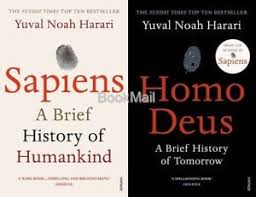Good Shame, Bad Shame
- By Matthew Jack
- •
- 07 Mar, 2019
- •
Is shame "good" or "bad"?

This blog was inspired by the BBC Radio programme “When Greeks Flew Kites”, airing 4th March 2019, that looked at shame.
"Bad" Shame
The presenter of that programme, Sarah Dunant, tells of how in 1944, following their liberation from German occupation, French society turned on those young women who had been seen as having been too friendly with the occupying German army.
As part of the so-called “Épuration Sauvage”, or “wild purges”, these women were taken from their homes and paraded through crowded streets. They were sat down and their heads were shaved in front of a jeering, insult-hurling public.
This targeting and punishing of the women - named Les Femmes Tendues (the “shaved women”) - served as a kind of cathartic ritual by which the French public “exorcised the guilt and shame of occupation”.

"Good" Shame
The same radio programme goes on to highlight how shaming can be beneficial.
The example is given of the selling of formula milk in the 1970s to societies that lacked the clean water sanitary conditions needed for making formula use safe.
As explained by Peter Stearns, Professor of History at George Mason University, Virginia, after “a lot of publicity and a lot of angry representations”, going on for well over a year, the corporation in question, Nestle, “really did change its policy, so the corporate shaming practice worked”.
Shame's Inner Workings
To quote Stearns, whomever the shamed party might be, “shaming does not necessarily guarantee that the shamed individual feels wrongdoing... the shamed individual simply realises that they need to put on a different public face”.
Indeed, certainly when it comes to corporate shaming, Professor Stearns concludes that there’s no “internalising” of shame; rather, the focus is on maintaining a good corporate image and on repairing any reputational damage.
Another way of putting this is that shame works through the enforcement of conformity to social norms... rather than through changing our “inner” psychological world or value system.
In the past, there was more honesty about the use of shame as an instrument of social control.
Shame Gets Medieval
Dr Mary Flannery of Oxford University has made a study of shame as depicted in the past. “When you look at medieval texts, especially those concerning ideals of female behaviour, you see that people are being encouraged to develop a sense of shame.”
Flannery explains how "in medieval texts addressed to women, you see a lot of instructions there about what kind of behaviour to avoid so that you don’t look like a harlot".
Some examples:
- “Wherever you take ale or wine, take not too much, and leave promptly... it is shameful to be drunk”, and
- “Don’t go to wrestling matches, or to watch cock shooting, as if you were a strumpet or a harlot.”
In that time, shame was seen as a tool for the - shame-less - enforcement and promotion of good behaviour. “If you teach people to fear shame, they will behave in a way that you want them to behave in order to avoid that experience.”
In other words, shame has a long tradition of being used as a kind of stick by which to beat people into a state of "goodness".

Shame’s Short Attention Span
Looking back at historical examples of shaming, we might feel revulsion, as when we look at pictures of “justice by the mob”, and scenes like the one above of Les Femmes Tendues.
Shame is as fickle a guardian of morality and “good” conduct as are the ever-changing standards of public taste, and its use can be more about aggression - and about asserting control over others - than about genuinely striving for virtue.
In Stearns’s words, “behaviours that at one point in time are unexceptional all of a sudden become subject to shaming scrutiny”.
Shame can also be blatantly hypocritical when buoyed by moral fervour and self-righteous indignation, as if the judge is automatically more worthy than the judged (we see something similar in today's blame culture).
As was openly admitted in medieval times, shame plays on our fear of social exclusion - and comes at a cost to one of our deepest freedoms: our individual conscience as a "weighing scales" of right and wrong.
Something More Ambitious?
In her closing reflections, Dr Flannery makes the point that in the medieval period, though shame was seen as a necessary first step towards penitence and confession, there was also “an emphasis on not feeling too much shame, just because if you feel too much shame, you might not confess to begin with, because you’re just so upset at the prospect of what you’ve done and confessing that to someone else”.
Dunant summarises it like this; “beware of too much shame; it can paralyse you”.
In the modern context, a lot of us might not feel comfortable about the whole business of penitence and confession, but if we put these in more modern terms, isn’t it useful to be able to self-reflect... and face ourselves even when doing so is challenging and sometimes painful?
Here’s a proposition: whatever its uses, shame ultimately relies on psychological forces like fear and anger that rob us of our true potential, and take us in the opposite direction to our love, joy and true intelligence.
The question is, even if somehow we could use shame to enforce the perfect code of conduct, is it wise to steamroller free will and trample on all our freedom to harness and develop our own, innate sense of what’s right?
What's at stake here is our decision to permit - or suppress - our true, creative nature and self.
Without that, it's argued on this website, we will become less and less engaged in our lives on a deeply, satisfied level, and, ultimately, more at risk of stress (and therefore such common diseases as diabetes and obesity); depression; addiction and anxiety).

Nowadays, there's plenty enough food and other essential "goods" to go around for all of us, yet our competitive nature - and culture - remain.
*
"Success" is most often defined in material terms, the message being that "winners" and "losers" are those more or less successful at competing - for example at sporting, academic or other contests.
Our value system reflects this, so that "good" people are regarded as those good at competitions and contests, perhaps in that they are materially wealthy, "beautiful", muscley or slim.
Losers are regarded as inferior, even "bad". Yet by the logic of competition, there must always be losers.
Even if we're incredibly gifted and hardworking, how long can we keep it up being "the best"? Can we always be a "winner" as defined in these terms?
*
Here's another possibility: just by being ourselves, we are "the best" already. Being ourselves is a "competition" that only we can ever win.
*
To be ourselves means to deal with the myriad distractions that threaten to take us away from ourselves. Read here for how forces such as fear and anger can work to distract us from ourselves.
Nonetheless, taking that challenge - and being on that "journey" - is success enough.
If we trust ourselves - and our own human potential - what it takes to be good and "successful will be taken care of.
The prize is our own - creative - self.
Just be prepared to be surprised to the upside.

Nowadays, cognitive behavioural therapy (CBT) is a mainstream means of helping people with illnesses like anxiety and depression.
CBT began in 1955, in the form of REBT - “Rational Emotive Behaviour Therapy” - as introduced by Albert Ellis. Ellis's key concept was that persisting emotional distress very often goes with sets of irrational ideas and beliefs.
Ellis observed how people can tend to take their experiences too personally - in the sense that they can take them as defining who they are for all time. Hence, to suffer a setback, for example, can be taken to "mean" that we are inherently “unlucky” or "a failure”.
In other words, we can suffer from sweeping generalisations ( see “parrot perception” ).
Typical of this is to see only “the bad” in something or someone, perhaps even in our own self ( see “swan perception” ).
Ellis's solution is to keep a calm, rational perspective on the things that happen to us, and to be a little more accepting of reality.
For Ellis, we can afford to have a little more faith in life and in what it holds in store. We can afford to give a little more credit for our human potential - and for our ability to emerge from our past struggles in a good place.
We have to break the tendency for “negative event” (e.g. failing at a job application) to lead to “negative thinking” (“I am a loser”). This tendency, Ellis saw as the very essence of irrational thinking - a thinking that, all too often, is automatic ( see “stressed perception” ).
Ellis recommended that we become more aware of our irrational thinking in response to events. Challenge our irrational thinking, he suggested, and switch to thinking about our life in a more proportionate, rational way.
Meanwhile, we must avoid the common trap of associating our “negative” feelings and thinking with the “negative events” that apparently trigger them.
*
In my book The Creative Self , I offer a perspective on irrational thinking and skewed perception based on four “stress forces” of fear , anger , compulsive desire and gloom - as can seed within our mind misleading stories and false narratives.
For a technique by which we can increase our awareness of these “stress forces” and take back ownership of our thinking and our real
self - as truly ours
- click here.

Like perhaps philosophy's most famous statement "I think therefore I am".
These words were those of René Descartes (1596 – 1650), a man of such stature in some circles as to be almost an immortal.
For Descartes, thinking was so far advanced that it put experience, feeling and love in the shade. Descartes even explained away the imagination as just a waste of space (this “isn’t essential to me”), and relegated animals to the status of “automata” incapable of feeling any pain.
*
Anyway, despite Descartes' pre-eminence, it is interesting to note that science operates rather differently to Descartes, in allowing a little space for experience.
Science aims to explain reality - but is not over-confident to the point of privileging its explanations ahead of experience.
For science, experience has, ultimately, to be respected - just as Leonardo da Vinci advised.
*
A huge contribution to a new understanding of our faculty of reason has been made by neuroscientist António Damásio.
His book Descartes’ Error (1994) brought to wider attention a brain area where feelings (“affect”) combine with - and strengthen - thinking (“cognition”).
This brain area is the so-called "prefrontal cortex" (PFC).
Damásio wrote that the PFC provides an integrated, intellectual and emotional faculty of reason and decision-making, a proposal that flies in the face of Descartes and his notion of the mind and body as split; hence Damásio’s choice of book title.
To put his idea to the test, Damásio conducted a gambling experiment involving players picking cards from four decks. Unbeknownst to the participants, two of the decks (“C” and “D”) were set up to offer profitable takings, while the other two (“A” and “B”) were arranged sometimes to pay out higher rewards, but overall to sink a player deeper and deeper into debt - thanks to being stuffed full of “stinger” cards that incurred stiff penalties. In order to clarify the role played by the PFC, Damásio included players with known damage to this brain region.
*
Sure enough, “healthy” players learned to pick cards only from decks C and D, whilst those lacking a functioning PFC consistently made the - irrational - choice of picking from decks A and B. By tracking levels of emotional arousal at the time (as measured by skin conductance), Damásio confirmed that irrational choice-making in players coincided with defective processing of their emotions.
Damásio wrote that the PFC provides an integrated, intellectual and emotional faculty of reason and decision-making, a proposal that flies in the face of Descartes and his notion of the mind and body as split; hence Damásio’s choice of book title.
To put his idea to the test, Damásio conducted a gambling experiment involving players picking cards from four decks. Unbeknownst to the participants, two of the decks (“C” and “D”) were set up to offer profitable takings, while the other two (“A” and “B”) were arranged sometimes to pay out higher rewards, but overall to sink a player deeper and deeper into debt - thanks to being stuffed full of “stinger” cards that incurred stiff penalties. In order to clarify the role played by the PFC, Damásio included players with known damage to this brain region.
Sure enough, “healthy” players learned to pick cards only from decks C and D, whilst those lacking a functioning PFC consistently made the - irrational - choice of picking from decks A and B. By tracking levels of emotional arousal at the time (as measured by skin conductance), Damásio confirmed that irrational choice-making in players coincided with defective processing of their emotions.

In this talk, available on YouTube, Yuval makes the distinction between human intelligence and consciousness.
"There has been an amazing development in computer intelligence over the last 50 years," he explains, "and exactly zero development in computer consciousness. And there is no indication that computers are going to become conscious any time soon."
So if it's our consciousness more than our intelligence that marks us out as different from robots, shouldn't we identify a little more with our consciousness? And therefore celebrate our abilities as creatures of consciousness - and so of love and joy, and creativity?
